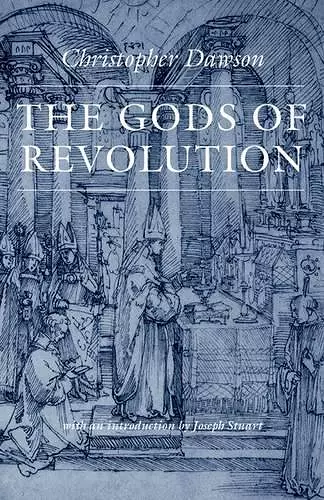The Gods of Revolution
Format:Paperback
Publisher:The Catholic University of America Press
Published:28th Feb '15
Should be back in stock very soon

In The Gods of Revolution, Christopher Dawson brought to bear, as Glanmor Williams said, “his brilliantly perceptive powers of analysis on the French Revolution. . . . In so doing he reversed the trends of recent historiography which has concentrated primarily on examining the social and economic context of that great upheaval.”
Dawson underlines the fact that the Revolution was not animated by democratic ideals but rather reflected an authoritarian liberalism often marked by a fundamental contempt for the populace, described by Voltaire as “the ‘canaille’ that is not worthy of enlightenment and which deserves its yoke.” The old Christian order had stressed a common faith and common service shared by nobles and peasants alike but Rousseau“pleads the cause of the individual against society, the poor against the rich, and the people against the privileged classes.” It is Rousseau whom Dawson describes as the spiritual father of the new age in disclosing a new spirit of revolutionary idealism expressed in liberalism, socialism and anarchism. But the old unity was not replaced by a new form. Dawson insists the whole period following the Revolution is “characterized by a continual struggle between conflicting ideologies,” and the periods of relative stabilization such as the Napoleonic restoration, Victorian liberalism in England, and capitalist imperialism in the second German empire “have been compromises or temporary truces between two periods of conquest.” This leads to his assertion that “the survival of westernculture demands unity as well as freedom, and the great problem of our time is how these two essentials are to be reconciled.”
This reconciliation will require more than technological e”fficiency for “a free society requires a higher degree of spiritual unity than a totalitarian one. Hence the spiritual integration of western culture is essential to its temporal survival.” It is to Christianity alone that western culture “must look for leadership and help in restoring the moral and spiritual unity of our civilization,” for it alone has the influence, “in ethics, in education, in literature, and in social action” su”ciently strong to achieve this end.
ISBN: 9780813227092
Dimensions: unknown
Weight: 290g
277 pages